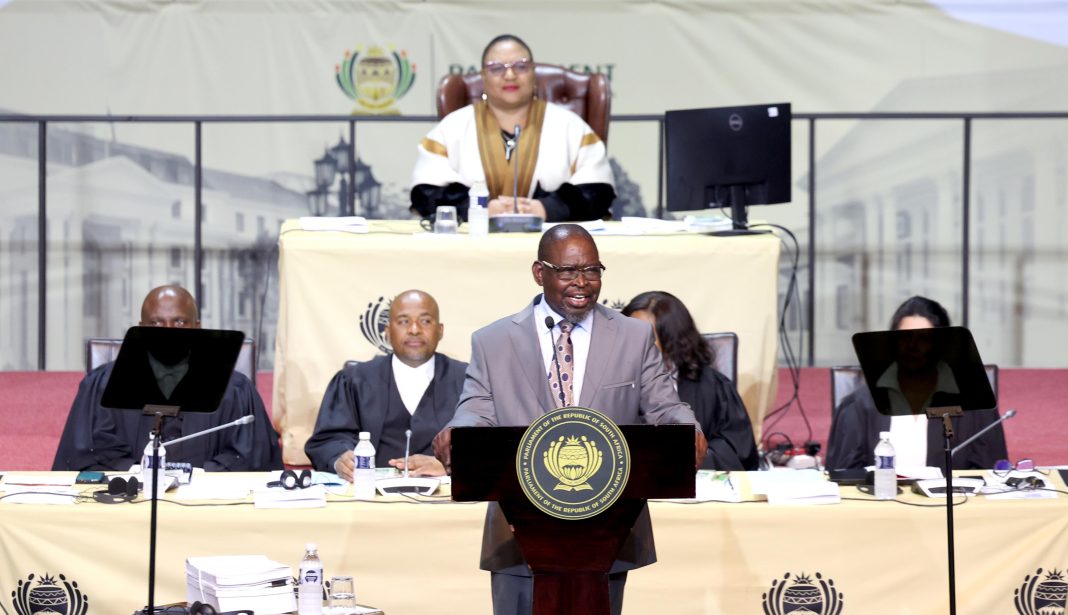By Thebe Mabanga
The National Council of Provinces wants local government prioritised over the medium term of the budgeting process, starting with a review of how much the sphere receives from the national fiscus.
Sanny Ndlovu, the chairperson of the Select Committee in the NCOP, addressed a media briefing by the finance cluster on Thursday.
Ndhlovu pointed out that Finance Minister Enoch Godongwana went out of his way to address the debate around allocation received by local government.
Godongwana announced that municipalities would receive R 552,7 billion over the next three years.
“This debate has been continuing for some time now and it was raised sharply during the Presidential Local Government Summit in September 2022, where they officially resolved on the need for a review of the 1998 White Paper on Local Government.” said Ndhlovu.
Godongwana said some role players, such as the South African Local Government Association (Salga), would like the sector to receive as much as 40% of nationally raised revenue.
Local government currently receives less than 10% of the equitable share, largely because municipalities have their revenue raising capacity from rates and revenue from water and electricity.
Ndhlovu said the 2022 summit identified several factors regarding the inefficiencies and systemic failures in local government. These included the lack of requisite technical skills, governance failures, an inability to generate funds – especially by rural municipalities – and inadequate funding from the national fiscus.
Ndhlovu cited the latest allocation as inadequate.
The contemplated reform in local government, as contained in the second phase of Operation Vulindlela, was announced by President Cyril Ramaphosa in the State of the Nation Address and launched two weeks ago.
“We acknowledge that the review of budget allocation to local government is one of the priorities in the Phase Two of Operation Vulindlela, wherein government aims to improve the performance of local government. This includes professionalising utilities, appointing suitably qualified people to senior positions and reviewing the local government fiscal framework.” Ndhlovu said, restating one of Operation Vulindlela’s goals.
She said the committee was observing with keen interest the process of drafting the updated White Paper on Local Government since the document was critical for local government reform.
“Our people in rural areas interface with local government for their daily service delivery needs, such as water, housing, electricity and roads, amongst others, and in most cases the local government is found wanting in this regard.” said Ndhlovu.
Ndhlovu called on the Department of Cooperative Governance and Traditional Affairs to accelerate the process of revising the White Paper, and stakeholders including Salga, must take a keen interest and voice their position.
Apart from being the focus of reforms in the second phase of Operation Vulindlela, local government will be critical to another goal of the reforms, which is the apartheid legacy of spatial inequality.
“Reforms will include changes to housing policy and accelerating the release of publicly owned land and buildings.” he said.
“This will also entail clearing the backlog of title deeds for affordable housing, and a comprehensive regulatory review aimed at removing barriers to the development of low-cost housing.”
All these are effected at provincial and local government level.

